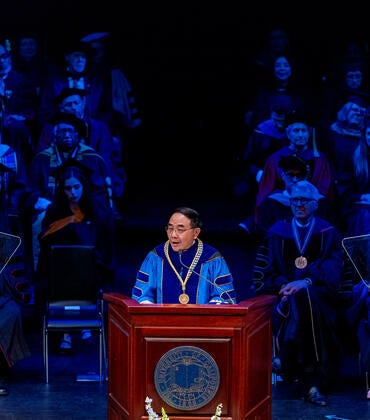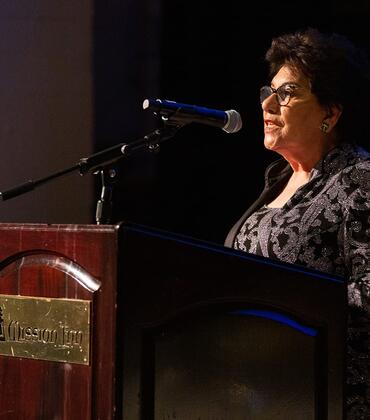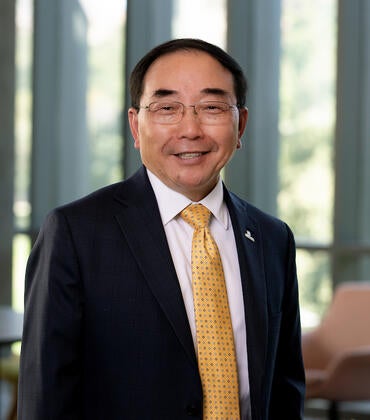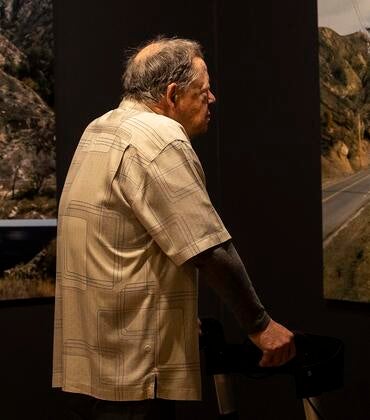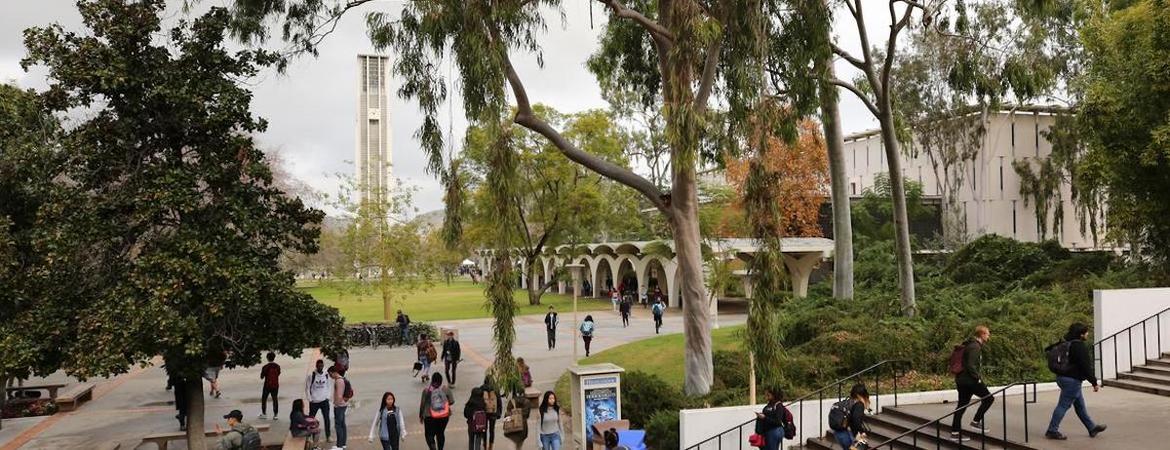
UC Riverside is nearing the end of its first-ever comprehensive fundraising campaign. The public phase of the $300 million Living the Promise: The Campaign for UC Riverside was publicly announced in October 2016, with a plan to end on Dec. 31, 2020. The total raised through August 23 was $298,116,805.
Rather than slow the campaign, the coronavirus pandemic has highlighted two of the greatest needs Living the Promise sought to address, said Peter Hayashida, UCR’s vice chancellor for University Advancement. Hayashida said the crisis has underlined the Inland Empire’s need for better healthcare and more skilled jobs.
“The pandemic amplified the regional healthcare disparities our School of Medicine was established to address. With high prevalence of obesity, hypertension, diabetes, and cardiovascular disease in the Inland Empire, our population was hit hard by coronavirus,” said Hayashida, who has led UCR’s fund-raising arm for the past 11 years.
The Inland Empire performs poorly compared to other regions of the state in almost all health outcomes, including in diabetes and coronary heart disease. Through August 23, the coronavirus had claimed almost 1,600 lives in the Inland Empire, with the region consistently named one of the nation’s COVID-19 “hot spots.”
The UCR School of Medicine, expanding to double its student base, is a key component of a strategy to alleviate the physician shortage in the Inland Empire, which includes Riverside and San Bernardino counties. The region has only 35 primary care physicians per 100,000 people, well short of the 60 to 80 per 100,000 recommended by the California Health Care Foundation.
And as the U.S. has reeled from pandemic-related job losses, the Inland Empire’s unemployment rate for May 2020 was 14.9%, far exceeding national numbers.
“A major driver in this vulnerability is the region’s disproportionate reliance on logistics industry jobs. One of UCR’s campaign priorities was a focus on creating a more sustainable world,” Hayashida said. He said the new California Air Resources Board center on UCR land could diversify Inland Southern California's employment infrastructure with a “new green economy surrounding UCR that will be more resilient in future downturns.”
Even as some philanthropists have experienced recessionary belt-tightening, the need for private support supplementing higher education has increased in importance as public funding declines.
A national survey this past spring found 43% of higher education fundraisers would fall short of their goals this year. But giving to UCR in the fiscal year that ended on June 30 has increased 21% over the previous year. Recent gifts to UCR include:
- Rochelle A. Campbell and Allison Campbell gave $10 million to support excellence, access, and opportunity for students and faculty across the university’s disciplines.
- The Hellman Fellows Fund gave $5 million to endow the UCR Society of Hellman Fellows, which supports research by junior faculty members.
- A $1 million gift to create the Ron H. Chilcote Endowed Chair in Latino and Latin American Studies and Research. The gift comprises donations from the Chilcote Family Trust, Latin American Perspectives, and the Foundation for Sustainability and Innovation. Ronald H. Chilcote has served as the Edward A. Dickson Emeritus Professor of Economics and Political Science at UCR since 1994.
- Bruce McCormick, a 1974 UCR graduate, made a gift of $28,000 to create the first endowed scholarship in the Economics Department.
- Bruce Varner and his late wife, Nancy, gave $1 million to create an endowed chair for cancer research in the School of Medicine, which was matched with $500,000 from the UC President’s Office.
- Frank and Maxine Vasek pledged $900,000 to sustain UCR’s herbarium, founded by Frank Vasek.
- The Inland Empire Health Plan gave $2.6 million for Mission Awards, each of which provides four years of tuition for School of Medicine students.
- Sean Harper and his wife, Stella Harpoothian, donated $1.5 million for an endowed scholarship that will support five undergraduates in the College of Natural and Agriculture Sciences each year.
UCR alumna and Associate Vice Chancellor for Development Marie Schultz said that finding meaningful ways for alumni, faculty, staff, and community members to be a part of this first-ever campaign will be an emphasis in the months ahead. Her fund-raising team will continue to focus on supporting the teaching and research mission of the campus through the creation of new endowed chairs as well as student support.
Hayashida and Schultz aim to build on the campaign’s momentum for student needs, during the closing months of Living the Promise, and beyond. The campaign has raised $35 million of its $50 million goal for student support initiatives.
“The magnitude of this crisis has revealed many of the ways our students are more vulnerable than at many sister campuses,” Hayashida said. “Access to technology, broadband internet, and home environments conducive to schoolwork are challenges for our mostly first-generation and low-income undergraduates.”
For more information on the campaign, including on giving opportunities, visit https://giving.ucr.edu/living-promise.
